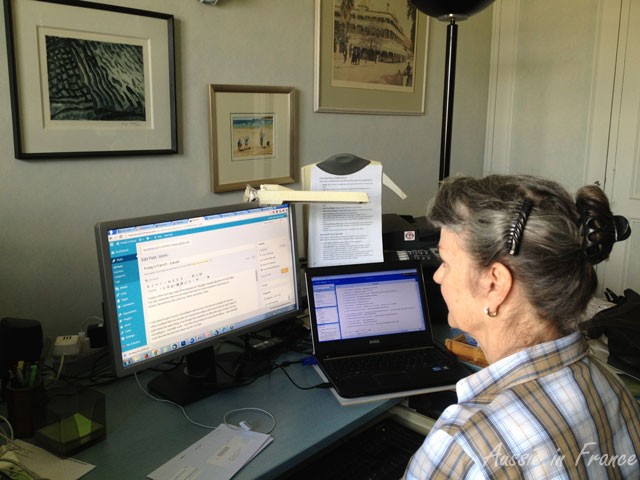I wrote a short post last week about travaux so I thought I should talk about travail today. You may remember that travail comes from the low Latin trepalium, instrument of torture, derived from the Latin tres, three, and palus, stake.

I was about to give travaux scientifiques and travaux manuels as examples of travaux when I realised that you can also say travail scientifique and travail manuel and it doesn’t quite mean the same thing, even though the translation is often the same. In fact, travaux scientifiques – scientific work – are often the product of travail scientifique – also scientific work! But the line between them can be very fine.
C’est un travail scientifique original = It’s an original scientific work
Il vient de publier les résultats de ses travaux scientifiques. = He’s just published the results of his scientific work.
Il a fait un travail scientifique extraordinaire = The scientific work he carried out was extraordinary (though this can be translated in many different ways depending on the context).
The distinction between travail manuel and travaux manuels is a little easier.
Il aime le travail manuel = He likes manual work.
Les travaux manuels occupent les enfants et aident à leur développement = Manual work occupies children and helps them to develop.
But the main meaning of travaux manuels is arts and crafts.
Travail intellectual is intellectual work in the sense of brainwork or mental work while travaux intellectuels corresponds to the work produced and is often opposed to travaux manuels.
Il fait un travail intellectuel = He does intellectual work.
Jean Michel often says “Qu’est-ce que c’est que ce travail?” to mean“what’s going on here?”
And here are a couple of expressions to finish off:
Le travail c’est la santé which approximately means that work is good for you.
“à travail égal, salaire égal” = equal pay for equal work.
Alors, au travail !



